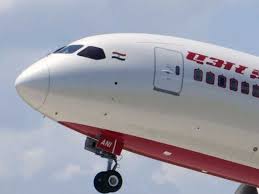Hyderabad, Mar 12: In a mid-air scare, "incorrect" input by Pakistan's air traffic control to a Mumbai-bound Air India Dreamliner plane from London led it to come close to another aircraft, prompting a sharp reaction from India.
The Mumbai-bound Air India flight AI-130 from London's Heathrow Airport yesterday escaped a near-miss incident after the Karachi Air Traffic Control (ATC) gave pilot a wrong frequency that could have changed the flight path of the Boeing 787 and brought it close to Philippine's Cebu Airline from Dubai.
"It is a very serious incident and we do not have any precedent of such an incident," Airports Authority of India chairman Alok Sinha told reporters on the sidelines of the India Aviation show here.
"We are still deliberating (decide) as to what level should the issue be taken up -- at the diplomatic level or at some other forum," Sinha said, asserting "we will ensure that such an incident does not occur again."
The Karachi ATC also gave its Mumbai counterpart an incorrect ETA (expected arrival time) when the Air India aircraft was flying over Sapna and Nobat, thereby reducing the time gap between it and the Cebu plane.
In the incident that occured at 0130 hours on Tuesday, the Karachi ATC asked the pilot of the Air India flight to report two-way with the ATC in Mumbai.
However, the pilot even after trying various frequencies could not contact the Mumbai ATC as it had not yet reached Mumbai airspace but later managed to establish contact with the Ahmedabad ATC.
Aviation sources said that safety was "not compromised" by the alert Air India pilots who landed the aircraft in Mumbai in an incident-free manner. Officials did not say how many passengers were on board the aircraft.






Comments
Add new comment